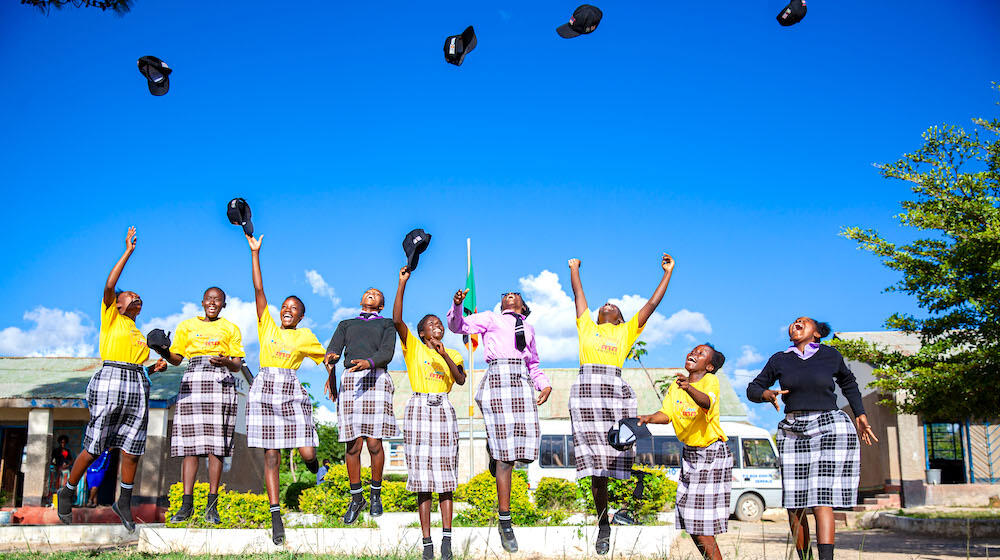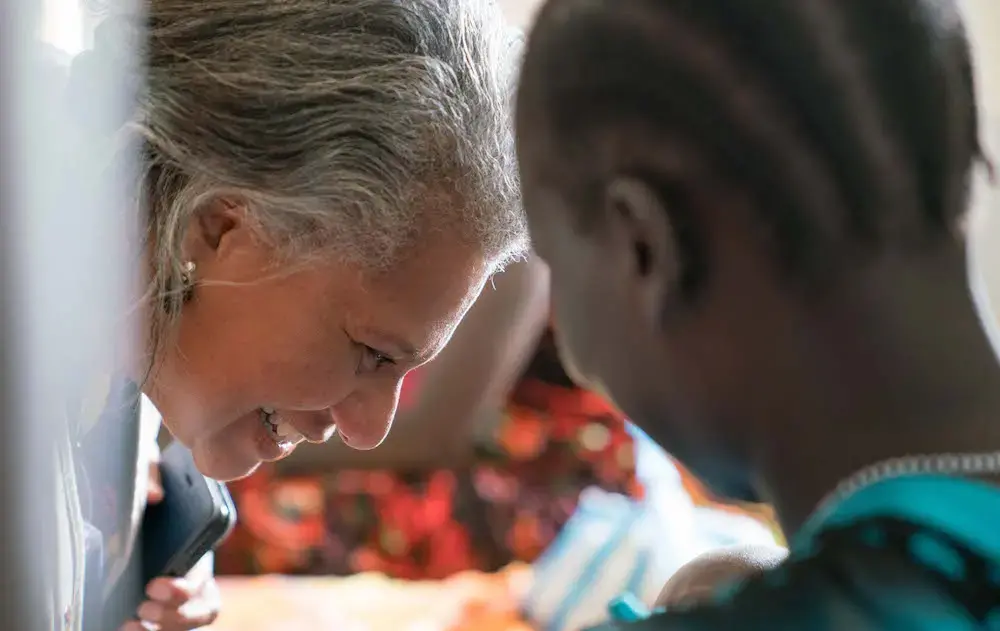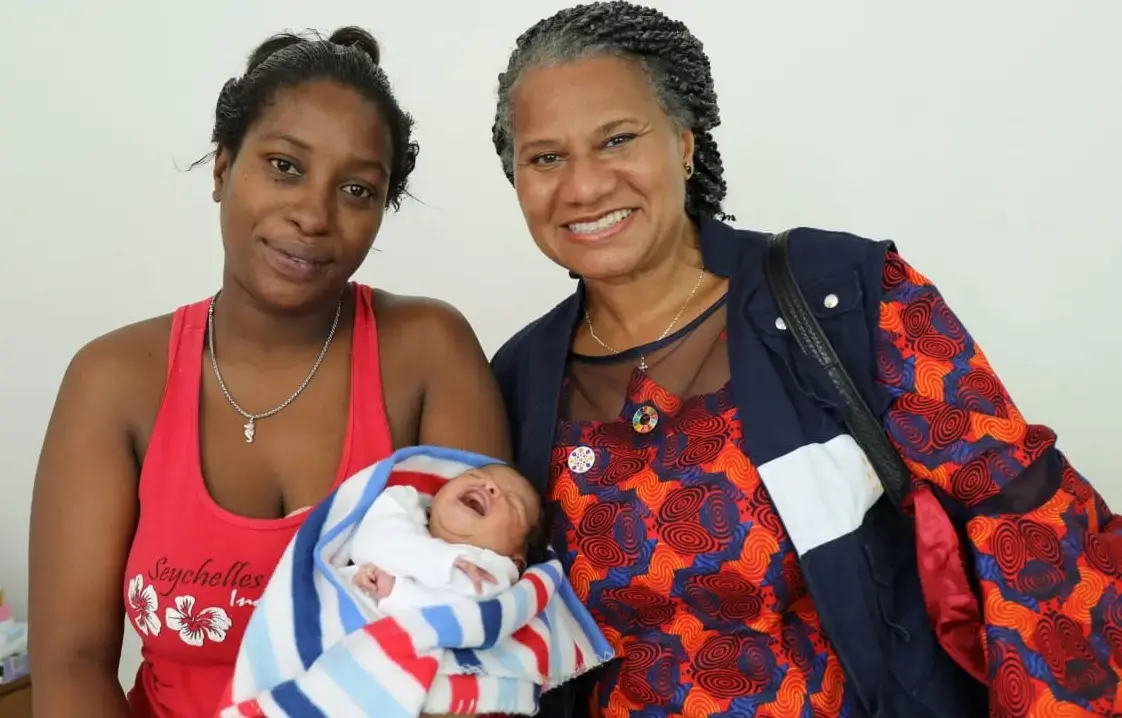World Population Day, 11 July 2022
Opinion editorial by Dr. Bannet Ndyanabangi, UNFPA Regional Director for East and Southern Africa
Rebecca, 20, became pregnant while still a teenager, subsequently missed out on an education, and is living with HIV. Now working as a peer educator at a health centre in Uganda, she discloses her HIV status to encourage other adolescents and young people living with HIV to access care.
Young people find it easy to talk to her, and she is particularly proud of her work with pregnant adolescents and adolescent mothers. “I see how they are suffering,” she says. To empower her peers, she shares her knowledge about sexual and reproductive health and rights, and links them to available services, including family planning, sexual and gender-based violence services and HIV testing.
Rebecca is determined to improve her own life too. “I want to return to school. My dream is to be a midwife.” Her thwarted aspirations are not unique to her. Her story is echoed in the lives of many girls and women across East and Southern Africa, whose dreams have been shattered because they were not given the opportunity to claim their rights and to choose their paths in life.
It is precisely this, equal access to opportunities, that we must keep our focus on as the world reaches a population of 8 billion in November this year, a mere 13 years after achieving the 7 billion mark – not whether populations are growing or shrinking.
The milestone of 8 billion is a moment for celebration, because due to incredible advancements in poverty reduction and health care, people are living longer and healthier lives. In Africa, for instance, deaths of infants declined by 81 per cent and maternal deaths by 37 per cent between 2000 and 2020.
In a world of 8 billion, almost one fifth of the global population, or 1.42 billion, will live on the African continent. Each and every one of us will benefit from a more just, prosperous and sustainable world. To achieve that world – and the 2030 Agenda – countries must anticipate the way their populations are changing and build demographic resilience. Societies must allow all people, including young women like Rebecca, to exercise their full range of rights, including their reproductive rights.
What does it take to build this resilience in the East and Southern Africa region? It takes understanding of demographic trends. These are influenced by social, cultural, economic, environmental and political factors. Based on evidence regarding these trends, policy responses have to be holistic and responsive.
We must be proactive – by anticipating and planning for demographic change. This will require investing in education, health, gender equality and access to decent work. We must be transformative – by changing traditional norms that hold societies back, especially the roles of women and men in families and societies.
To harness the potential of all, barriers to opportunities must fall, including for people who are marginalized in society – women, young people, the elderly, disabled and migrants. Investments must be made in data, and in human capital. Because the greatest agents of change are populations that are more empowered, more responsible and more inclusive.
To ensure demographic resilience, we must support human rights, including every individual’s reproductive rights and choices. Sustained development requires policies based on data, evidence and human rights. And it can only be achieved if women have autonomy over their bodies, and if their reproductive rights and choices, and gender equality, are safeguarded..
If we are to address our common challenges, shared solutions are needed, because no one country is self-sufficient in this interdependent world. And nowhere is this more striking than in our efforts to secure solidarity on the climate crisis. Many young, high fertility populations have contributed little to the climate crisis, yet they are suffering economic shocks and dislocations due to natural disasters.
To ensure that our planet can support the needs and aspirations of the present and future generations, all countries must work together towards greater equity and solidarity. This is why UNFPA helps countries find pathways to thriving in a world of rapid demographic change. We owe it to young women like Rebecca to realize a just, prosperous and sustainable world for all.
This opinion editorial was first published by Daily Maverick.





